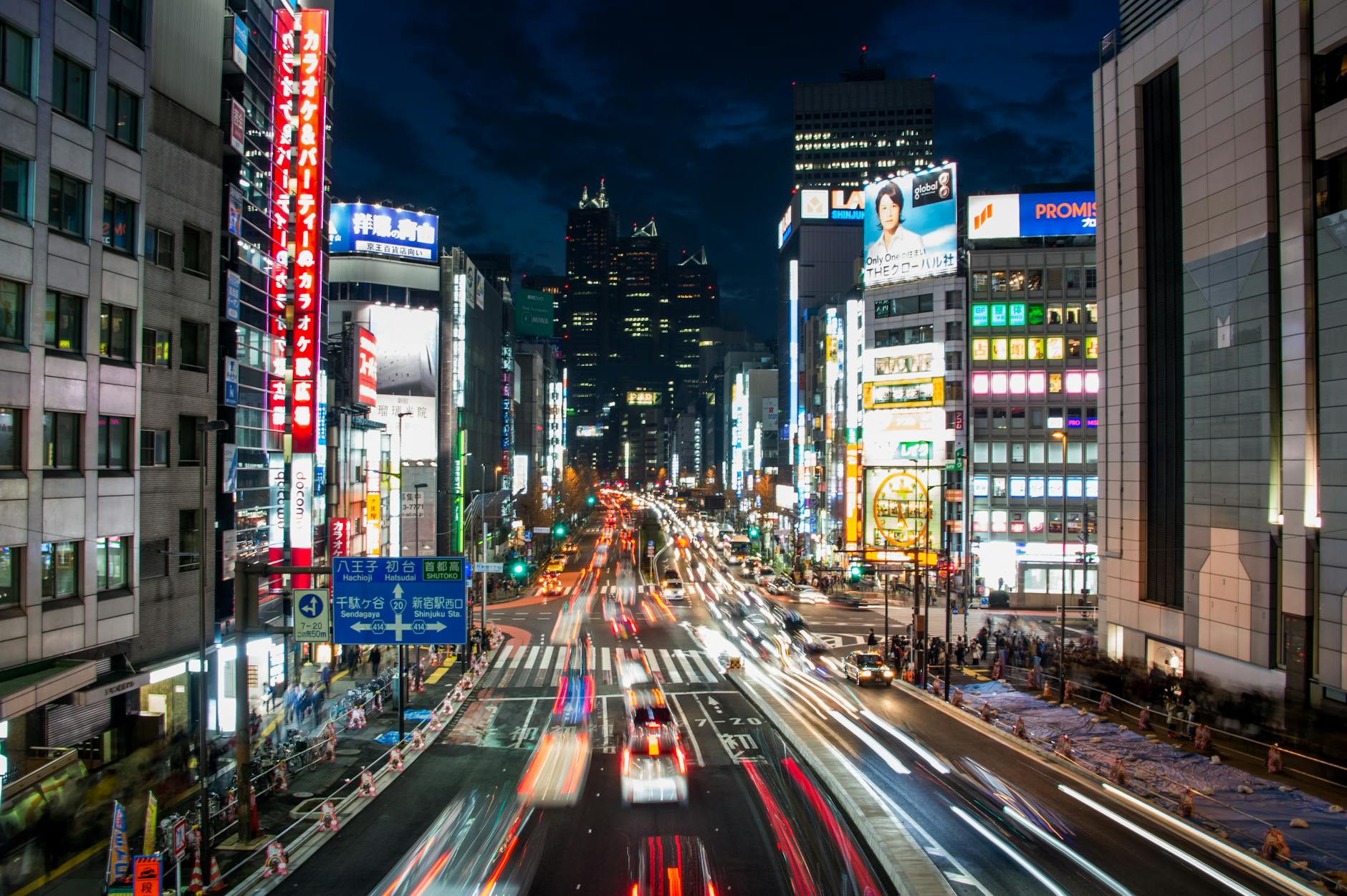How to Plan a Sustainable Journey from Australia to Ecologically Diverse Destinations

Selecting Ecologically Diverse Destinations
When planning a trip that marries adventure with environmental consciousness, it's crucial to select destinations brimming with ecological diversity. Think about arctic cruises, which offer a glimpse into pristine polar environments, highlighting the beauty of untouched nature. These cruises provide a unique chance to see wildlife while promoting sustainable tourism practices. On the other side of the globe, Machu Picchu tours in Peru offer an insightful encounter with ancient cultures and diverse eco-zones. Understanding these magnificent sites' biodiversity can help in making informed travel decisions.
While exploring such destinations, the principles practised at places like the Royal Botanic Gardens in Melbourne can serve as a guiding light. Emphasizing sustainable travel ensures minimal environmental impact, aligning with Liam Carter's tech-savvy and sustainability-oriented approach. It's vital to consider if the locations are proactively engaged in conservation efforts or support eco-friendly travel initiatives.
Furthermore, eco-tours, like those at Melbourne Zoo, provide educational experiences that emphasize wildlife preservation and environmental stewardship. These experiences can enrich any travel itinerary by fostering a deeper appreciation for biodiversity. Incorporating cultural insights, such as learning from the ingenious terraced farming practices in Peru, enriches the travel experience, merging Liam's love for innovation with sustainable exploration.
Overall, choosing destinations that are both ecologically rich and conscious of their environmental footprint ensures meaningful and responsible travel experiences.
Planning Sustainable Travel Routes
Opting for Eco-Friendly Transportation
When it comes to planning a sustainable journey, choosing eco-friendly transport can make a remarkable impact. By prioritising options like public transportation, cycling, or even walking, we can substantially cut emissions. For longer trips, such as cuba tours or journeys to isolated paradises like the Galapagos Islands, consider trains or buses over flights whenever possible. Even small changes, like opting for direct flights and using e-tickets, can reduce your carbon emissions.
Reducing Carbon Footprint
Balancing the beauty of exotic locales with our responsibility toward the environment requires thoughtful planning. While exploring the breathtaking biodiversity on galapagos islands tours, offsetting your carbon footprint becomes significant. Employ solutions like carbon offset programs or choose airlines dedicated to reducing their environmental impact. Tracking your carbon usage and taking steps to counterbalance that impact might also mean participating in sustainable projects or donating to environmental causes.
Integrating Green Lodging Options
To minimise our environmental impact further, integrating green lodging options is crucial. Look for accommodations that prioritize sustainability—think solar-powered facilities, rainwater harvesting systems, or eco-certified lodgings. Staying somewhere that values the surrounding environment isn't just about conserving resources—it's about ensuring that future travellers can also enjoy these stunning locations. It's akin to appreciating the sustainability-focused exhibits at the Melbourne Museum, where mindful contributions today promise the preservation of experiences for tomorrow.
Supporting Local Conservation Efforts
Partnering with Local Guides
Engaging with local guides offers a unique perspective on the regions you're exploring and supports the local economy. These experts offer insights that go beyond the surface, illuminating the environmental and cultural nuances of destinations like Cuba. Imagine wandering through Havana with someone passionate about cuba travel who brings to life the stories behind every street. Collaborating with such guides not only enriches your travel experience but also fosters sustainable tourism by directly contributing to the local community.
Participating in Conservation Projects
Participating in conservation projects provides hands-on opportunities to positively impact the environment. Whether it's beach clean-ups or animal rehabilitation, these projects deepen your understanding of local ecosystems while mitigating potential environmental harm. When considering destinations for such impactful travel, those with strong conservation initiatives, like Antarctica and its pristine landscapes, stand out. Engaging in antarctica cruises that prioritize conservation is a rewarding way to witness the region's untouched beauty while supporting preservation efforts.
Buying Sustainable Souvenirs
Selecting souvenirs crafted from sustainable materials supports local artisans and encourages eco-friendly practices. Prioritising items made from recycled or locally-sourced materials reduces your travel footprint and brings awareness to environmentally responsible craftsmanship. Markets near places like the sustainability-focused exhibits at Melbourne Museum often feature such goods, making it easy to bring a piece of your eco-conscious journey back home. By opting for these choices, you align your travel with sustainable values and contribute positively to the local economy.
Embracing Cultural and Natural Immersion
Learning from Indigenous Practices
When exploring destinations like South America, one of the most rewarding experiences is learning from Indigenous communities. These communities often possess profound insights into living harmoniously with nature, maintaining a delicate balance between human activities and the environment. For those embarking on south america tours, participating in community-led workshops and cultural programs can provide valuable perspectives and foster a deeper appreciation for sustainable practices. These experiences enrich your understanding of local ecosystems and offer practical knowledge that can be applied to daily life.
Respecting Local Ecosystems
Respect for local ecosystems is fundamental when traveling. Observing wildlife and plant life mindfully, sticking to marked trails, and avoiding interference with natural habitats keep ecosystems intact. Participation in guided tours is an excellent way to ensure minimal impact, as local guides can offer insights into the delicate balance of the environment. In Australia, for instance, eco-tours at Melbourne Zoo focus on conservation and educating visitors about the importance of protecting local flora and fauna.
Enjoying Sustainable Cuisine
Experiencing a destination's culinary landscape is crucial to travel, and opting for sustainable cuisine enhances this experience. Look for restaurants that prioritise locally sourced ingredients and utilise traditional methods that honour cultural heritage while maintaining ecological integrity. In sustainable travel, dining is not only about indulgence but supporting practices that promote environmental and cultural continuity. Whether enjoying a traditional meal on a galapagos cruise or tasting locally harvested produce, every choice contributes to a broader ethos of sustainable living.
Best Practices for Responsible Travel
Minimizing Waste Creation
As a sustainable travel enthusiast, my heart leaps whenever I find creative ways to minimize waste. One of the most effective strategies here in Melbourne is to embrace reusable containers and bags. By planning ahead, you can avoid the inevitable pile-up of single-use plastics. When visiting the vibrant Royal Botanic Gardens in Melbourne, consider packing snacks in a sturdy, reusable bento box instead of opting for disposables. Remember, every small gesture counts in reducing our environmental impact.
Contributing to Local Economies
Supporting local economies is crucial in fostering a sustainable travel experience. Exploring eco-tours at the Melbourne Zoo not only enlightens you about conservation efforts but also ensures that your dollars support local jobs and initiatives. Opt for locally-owned accommodations that employ sustainable practices, whether it be a cozy eco-lodge or a chic green-rated hotel. Further, dining at eateries that focus on local produce not only supports the community but also delights your palate with fresh, regional flavours.
Protecting Wildlife and Habitats
While soaking in the beauty of landscapes and wildlife, such as the sustainability-focused exhibits at the Melbourne Museum, it's pivotal that we protect these precious ecosystems. Engage in responsible wildlife viewing by keeping a respectful distance and following local guidelines. Support wildlife sanctuaries or conservation parks that prioritize animal welfare and habitat preservation. By making mindful choices, we ensure that our adventures leave a positive impact and continue to be as enriching for others as they are for us.


